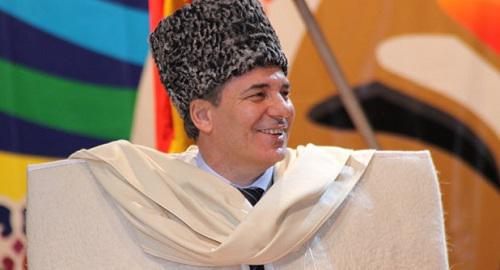
30 June 2018, 10:11
Scientists of Caucasus explain Senator Kanokov's criticism of law on mother tongues
The statement of Arsen Kanokov, the Senator (member of the Russia's Federation Council) from the Kabardino-Balkarian Republic (KBR), against the law on mother tongues (native or national languages) became a sort of a challenge to other members of North-Caucasian elites, experts regard, noting that the problem of studying native languages forms oppositional movements in the national republics.
The "Caucasian Knot" has reported that on June 19, Russia adopted the bill on the voluntary study of national languages at in schools. It was supported, among other MPs, by those from the republics of the North-Caucasian Federal District (NCFD). Users of social networks reproached them for cowardice and supported the KBR's Senator Arsen Kanokov, who called the bill ill-conceived.
The Kanokov's statement may encourage other high-ranking officials to also oppose the bill, says Madina Khakusheva, a Philology Doctor.
In the opinion of Maxim Shevchenko, the head of the Centre for Strategic Studies of Religion and Politics of the Modern World, by speaking in support of national languages, Kanokov outlined his leadership status.
Apart from Kanokov, the head of Chechnya, Ramzan Kadyrov, opposed the voluntary study of native languages.
However, Alexei Malashenko, a political analyst, suggests that other high-ranking officials from Northern Caucasus are unlikely to speak out against the bill.
Earlier Kanokov's actions also testified to his political independence. Thus, in September 2017, he urged the authorities of the Krasnodar Territory to stop persecuting Ruslan Gvashev, a Circassian activist, fined by the court for organizing an unsanctioned prayer at the Tulip Tree on the Day of Adygs' Memory.
This article was originally published on the Russian page of 24/7 Internet agency ‘Caucasian Knot’ on June 30, 2018 at 03:15 am MSK. To access the full text of the article, click here.
Author: Gor Alexanyan Source: CK correspondent




